Wildberries uses slave labor. No kidding. Wildberries has the most real slaves working in its warehouses. They are kidnapped, beaten, their passports taken away, and brought to the company’s warehouse to work for food under the supervision of guards, or should I say supervisors.
In addition, the operating activities of the company are connected with the use of gray schemes and direct “cheating” of contractors and partners. The story of Tatyana Bakalchuk’s foundation “without money, sitting on maternity leave” is also a complete fabrication.
At the moment, the founder of Wildberries Tatiana Bakalchuk became the richest woman in Russia, and then together with her husband, who owns 1% of the company, headed the Forbes rating of the richest families in the country, ahead of owners of Phosagro Gurievs and the famous Rotenberg family.
Vladimir Ilyin (name changed)
The story of one such slave.
On August 16, 2021, Vladimir Ilyin (name changed) from Pskov was reported on Instagram of the Alternative movement (which frees people from slavery all over the world). Unknown people promised him a ride home, but he was dropped off at a Wildberries store in the Moscow region.
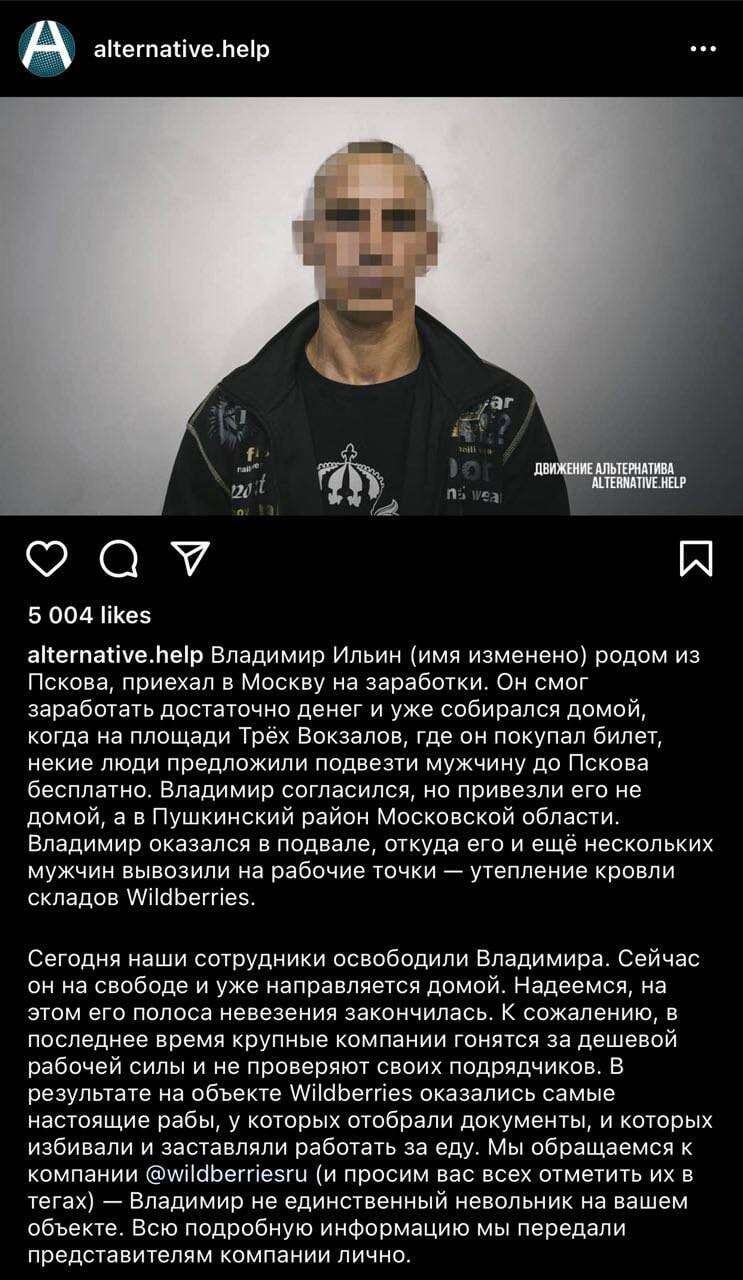
Posted on the Instagram account of the “Alternative” movement
Vladimir Ilyin (name changed) was from Pskov and came to Moscow to earn money. He was able to earn enough money and was on his way home when at Three Railway Stations Square, where he was buying his ticket, some people offered the man a ride to Pskov for free. Vladimir agreed, but they took him not to his home but to Pushkinsky district of Moscow region. Vladimir ended up in the basement, from where he and several other men were taken to work points – insulating the roofs of Wildberries warehouses.

According to the former slave at the Wildberries warehouse where he was held, dozens of other men are locked in captivity. Their documents were also taken away from them, and they are under round-the-clock guard. The captives are beaten for any disobedience. No money is paid – a roof over their heads and poor quality food.
Vladimir Ilyin was released by employees of the human rights organization “Alternative”. Vladimir sent a message to human rights activists through a warehouse employee and they organized his escape.

After the release, human rights activists appealed to the company to address the situation, but no response has yet been received.
But Wildberries responded to Afisha Daily . The press service said that all of this is black PR, it is a contracting organization, in the logistics centers of the company itself “there is always management present to resolve issues that arise, and all personnel are under round-the-clock surveillance”.

Article about Wildberries in “Maxim” magazine
On September 2, the magazine “Maxim” wrote an article about slaves in the company. It turns out that they have not only erotica. But four hours later – the article was deleted. I restored the article through the web archive.
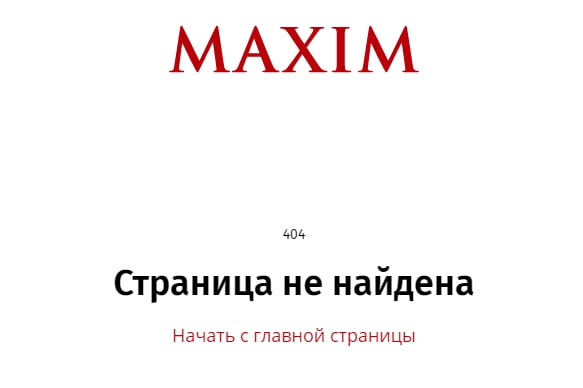
Screenshot of the page where the article used to be
The deletion of the article is most likely due to the fact that the article ruined the success story of Tatyana Bakalchuk. In interviews, she said that she started her business while she was on maternity leave. No money, pure enthusiasm.
Excerpts from the Maxim article, and my personal materials below.
A beautiful tale of Wildberries success
“Autumn 2004. Rain. Tatyana Bakalchuk, an English teacher, is driving across Moscow on public transport – subway, bus, 10 minutes on foot – for another 20-kilogram parcel of clothes…” So begins the first detailed text about Wildberries.

Forbes magazine released it in 2012. Bakalchuk’s online store was in its ninth year and had just surpassed Ozon.ru, Russia’s oldest online retailer, in popularity.
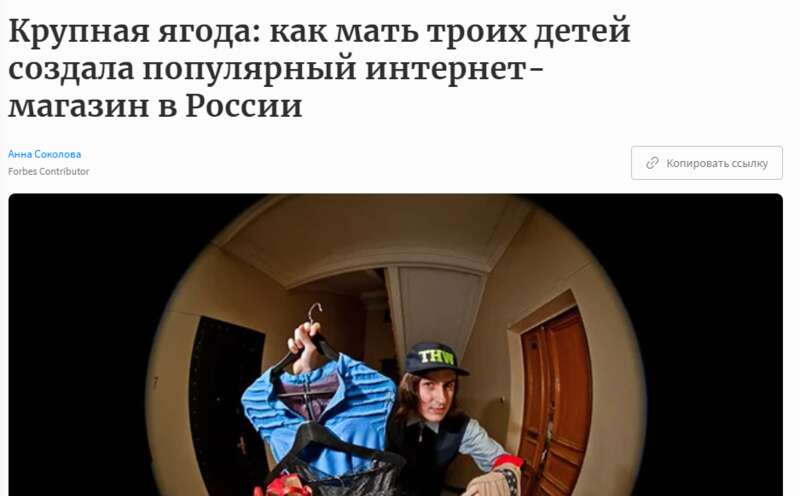
This and later materials, rare interviews with the founder of Wildberries and her husband Vladislav sell the reader a very glossy story. Tatyana Bakalchuk did not intend to become an entrepreneur – her need forced her to. Having neither startup capital (“there was no way to invest money – I only had enough to develop a website”) nor experience, she “moved forward intuitively,” eventually becoming the second female entrepreneur in Russian history whose personal fortune exceeded $1 billion. No powerful partners, no investors, no government support. The company, whose revenue in 2019 was nearly 117 billion rubles, is still positioned as a family-owned company.
It sounds beautiful. But in reality, it wasn’t quite like that.
First capital for Wildberries
Tatiana Bakalchuk’s husband Vladislav was not a radio-physicist nooner at the time Wildberries was launched, but quite a successful businessman. He had been selling computers since the late nineties, and in 2002 he founded the UTech provider in partnership with his acquaintance Alexei Fadeev. According to the SPARK system, in 2006, the revenue of UTech was about 30 million rubles, and the profit was 1.2 million.

The company owned the copyright to the site of UT Design web studio, which created, among other things, online stores. It was this studio that made the first Wildberries site. At the end of 2006, Fadeev found a generous buyer, the company NetByNet, with investment from Gazprombank, which valued UTech at less than $10 million (the most commonly quoted amount was $7.5 million). Bakalchuk owned half of the company, and he received his entire share (various estimates range from three to five million dollars) in cash. But according to Vyacheslav Ivashchenko, Wildberries business development director, UTech profits or money from the sale of shares in the company were not invested in the online store. And Tatyana Bakalchuk said in an interview that her husband sold a stake in UTech to a partner back in 2006, a year before the company was sold.
“Everything we managed to get out of it was invested in the company. I don’t remember the exact amount. I think it was 3 million rubles,” said Tatiana Bakalchuk.
However, the same SPARK does not reflect the sale of the share, and in 2007, Vladislav Bakalchuk was still listed as the owner of 50% of the business.
How Tatyana Bakalchuk’s public image was created
In 2017, Wildberries had a conflict with suppliers. In less than a year the company received more than two dozen lawsuits from partners.
- The owner of the brand Prime Jeans was desperate to get 6 million rubles in debt – and filed a suit for bankruptcy of Wildberries.
- The company United Fashion Group (UFG) demanded to return 31 million rubles for the supplied goods. According to UFG representative, Wildberries demanded 80 million rubles for the promotion, then asked for discounts, and after the refusal threatened to return the seasonal goods for a comparable amount.
- The Department stated that Wildberries wanted to make a return on all unsold goods worth about 5-7 million rubles, and after the refusal it delivered an ultimatum: either the supplier gets money for the sold goods and takes away the remainder – or he gets nothing and takes away all the goods.
Wildberries has won such courts. On the scale of the business (revenue in 2017 was almost 47.5 billion rubles, profit – 428 million) the amount of lawsuits were generally insignificant. But due to the closed nature of the company, rumors of financial problems began to circulate in the market.

Managers complained to Tatyana Bakalchuk and her husband about difficulties in negotiating with suppliers, a former Wildberries employee recalls. The company wanted to work with expensive brands, and the first thing they asked was, “Aren’t you going bankrupt?”
That’s when the Bakalchukes first decided to hire professional PR people. The search was assigned to Egor Pchelintsev, one of Wildberries’ oldest employees. He is now director of advertising and PR. Pchelintsev chose Lampa, a small PR agency. Its owner Yevgenia Lampadova refused to comment – the agency does not disclose details of cooperation with partners.

Татьяна и Владислав Бакальчук
A former employee of Wildberries recalls that the partnership with PR specialists was not easy: they could not pull out infopods, the company’s employees ignored questions from external PR specialists in their work correspondence. But they were not discouraged. Putting on stream the production of press releases about quarterly results and the launch of new product categories, they began to persuade Tatyana Bakalchuk to become the hero of a big story in a leading business publication. A few months later she agreed.
PR people decided that the most profitable way to position the company was through the story of a self-made woman, a former English teacher who started the business shortly after the birth of a child.
The story appeared in Forbes magazine. It largely repeated an article in the same publication published in 2012. But since no one has talked about Wildberries in detail since then, the publication worked exactly as it was meant to. Suppliers became more loyal, having seen Bakalchuk as a “businesswoman from the soil”, there was no shortage of journalists. Gradually Tatiana got involved, began to participate in the social life.
In 2018, the founder of Wildberries gave her first ever video interview on the YouTube channel of billionaire Igor Rybakov. His company, Tekhnonikol, was then doing roofing for the largest Wildberries warehouse of 145,000 square meters near Podolsk.
Family Business
The team at Wildberries has picked a great one. For example, the launch of the company’s own brand was supervised by Marina Andreeva (Kim), Tatiana Bakalchuk’s sister. And here begins uncomplicated family intricacies, like in a play. Here are its protagonists.
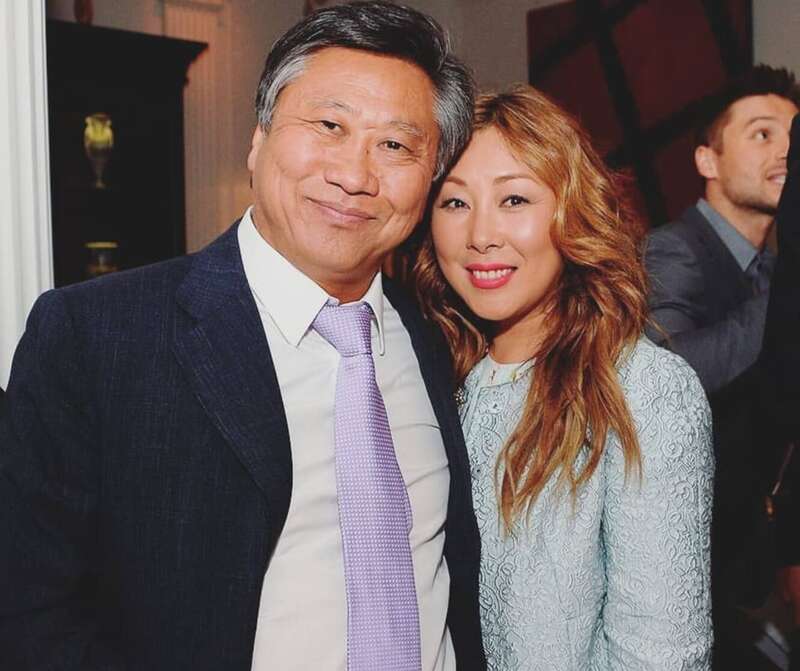
- Marina Andreyeva (Kim) is the sister of Tatyana Bakalchuk, a relative of Albina Tsoi.
- Albina Tsoi is the sister of Yuri Tsoi.
- Yuri Tsoi is the nephew of Sergey Tsoi.
- Sergei Tsoi – husband of Anita Tsoi, press secretary of former Moscow Mayor Yuri Luzhkov from 1991 to 2010. Since 2010, he has been First Vice President and State Secretary of RusHydro. Vice President of Rosneft for Material and Technical Support. According to RBC, Rosneft’s final boss Igor Sechin has known Tsoi since his time at Luzhkov, and it is “important for him to have someone he can trust in an economic position connected with the management of money.
- Anita Tsoi (Anna Kim) is a Russian singer, composer, TV presenter and philanthropist, a friend of the family of Igor Sechin, the final boss of Rosneft.
-
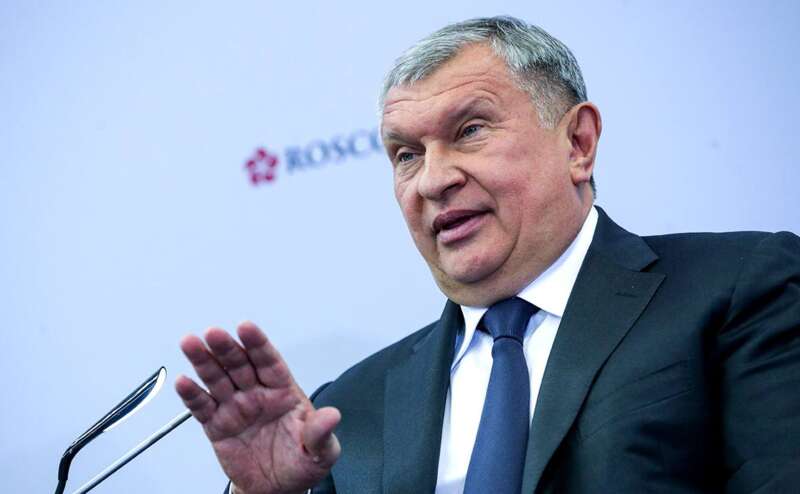
Friend of the Choi family – Igor Sechin
But Wildberries, of course, says that neither Sergei Tsoi nor Anna Kim have anything to do with the development of the company.
Destiny Adidas
Observers of the formation of Wildberries say that the Bakalchukes once ran a secondhand store in the Dynamite shopping center in Vykhino-Zhulebino. Wildberries denies any connection between the store and the company, but in 2003 the address of “Dynamite” was mentioned in the contacts of the D-Luxe catalog, made by the same studio UT Design. Okay, let’s chalk it up to trivial coincidence.

Here’s another coincidence. The Dynamite then housed the Universal Gym fitness club of the man and Tarzan Sergey Glushko, where Vladislav Bakalchuk’s current business partner Sergey Anufriev worked (in 2012, RBC reported that he owned Wildberries in parity with the Bakalchuk spouses). It was he who offered his new acquaintances to buy a large batch of Adidas items. According to the Russian Forbes, due to the financial crisis in 2008 the German manufacturer was left with an unsold batch of clothes and shoes worth more than 1 million euros. And if other companies refused such a solid deal in such difficult times, Wildberries took the remains on credit and sold them over the next two years. This is how the company’s sports division came into being.
Problems with Wildberries suppliers
According to the results of 2016 Wildberries becomes the largest Russian online retailer (according to Data Insight and Ruwards). Analysts estimate the company’s sales at 45.6 billion rubles. And in 2017, Wildberries began to have difficulties with its counterparties. By October 2017, the company had received 22 lawsuits from partners, including a bankruptcy lawsuit. The total amount of claims exceeded 283 million rubles. (In the previous three years the retailer was a defendant in 40 proceedings, the amount of partners’ claims was just over 146 million rubles.)
Suppliers began to complain about small revenues, were unhappy with the way their goods were discounted and how they were shipped out of the warehouses. Tension began to emerge. For example, in November 2015 Wildberries entered into a shoe supply agreement with fashion distributor United Fashion Group, and a year later, according to UFG, the retailer began “systematically preventing shipment of goods” and delaying payments, despite the agreed terms and conditions. According to the company’s representatives, Wildberries first demanded 80 mln rubles as a trade bonus (the supplier pays it to the seller for promoting goods) and after the refusal to provide a discount the retailer threatened to return the seasonal goods for a comparable amount. And he did. For 41 million rubles.
In January 2017, UFG sent Wildberries a written claim demanding payment of the debt, but the company ignored the letter. Then the supplier went to court. In July 2017, the Arbitration Court of the Moscow region satisfied the claim of UFG and obliged Wildberries to pay the distributor 31 million rubles for the delivered goods, 420 thousand rubles as compensation for the losses incurred due to unaccepted goods, and 200 thousand rubles to cover the cost of the state duty.
At the same time, rumors of Wildberries’ bankruptcy began to appear because the company was closed to the media. Then the founders of the online store hired professional PR specialists, who decided that it was necessary to promote the story of Tatyana Bakalchuk – a simple English teacher, who on her maternity leave decided to go into business and became a successful businesswoman. The material was published in Forbes, and the publication worked – the suppliers became more loyal.
Mass layoffs of Wildberries employees
In November 2020, Wildberries employees began complaining about layoffs “by entire teams ‘of their own free will'”. The head of the company’s mobile development team, Tatiana Averyanova, told her Instagram account that the marketplace was not paying compensation, was not recruiting new employees, and was withholding wages to its current employees.
“My team was told that the project is closed, there is no budget to maintain the team and everyone has to write a letter of resignation. My project is far from my first. I managed to transfer several employees to other projects, but then it became known that these projects are also closed or cut as much as possible. Those who refuse to write a resignation and wait for an official reduction, they just do not get anything, “- Tatiana wrote.
So Wildberries has declared that the information about mass dismissals is not true, and the company has more than three thousand vacancies, and in general it is just a relocation of retail facilities – “ineffective ones are closing, but new ones are opening”.
By the way, employees of Wildberries, who work at the delivery, often complain that they hang on them things that, for whatever reason, customers refused to take, including defective goods.
Penalties for sellers
In March 2021 a screenshot of an official letter from Wildberries to one of the sellers appeared in the Marketplace Merchants chat:
Good afternoon.
We have identified 52 fake (custom) reviews from your side on their products. We are forced to impose a penalty on you in the amount of 100,000 rubles. Enclosed DS + Act. You need to fill in the details of the DC and upload the document.
We look forward to hearing from you.
The support service confirmed that this is a real letter, and the amount of the fine was taken naturally from the ceiling.
“There are no rules and no ratios. Feedback falsification as a fact is forbidden. It’s the reputation of the site and the image for customers. Such a thing as scamming is nowhere welcomed and, accordingly, suppressed, and you should be aware of it. If it’s your product, it does not mean that you can spin reviews on it, and then be surprised that it put a fine, the site owner reserves the right to set the current rules and penalties “- explained in support service.
How did Wildberries business start and what role did Bakalchuk’s partner, whom they rarely mention, play in its formation
It is believed that in the early years Tatiana Bakalchuk’s business consisted in the resale of clothes and shoes from German catalogs. In the early 2000s this was indeed a very popular business. According to her recollections, the budding entrepreneur stood out against the numerous competitors:
- set a single markup for buyers from all over the country: 10% (other agents took 15% from Muscovites and up to 30% from residents of other regions);
- did not ask for an advance payment.
This was enough for “Wildberries to expand, to develop faster and faster.
Bakalchuk got her first subordinates: “I called my younger sister, then [my husband’s] co-worker Vlad. But there were more and more orders and we couldn’t cope, so we called out to our acquaintances, our relatives. My father had already drawn his pension, but went back to work when we registered the LLC. My aunt became an accountant. Almost all the relatives came to help.”
“Good employees are constantly circulating between the other players – it looks like a touring troupe, while Wildberries originally had the idea of building the business as a family: many top people were raised within the company,” shares observations Alexander Ivanov, president of the National Association of Distance Trade (NADT).
Tatyana Bakalchuk’s sister Marina Andreeva (Kim) worked at Wildberries. She supervised the launch of her own brand, a former employee of the company told The Bell.

On social networks, Andreeva also lists a relative, Albina Tsoi. She is the sister of Yuri Tsoi, the nephew of Rosneft Vice President Sergei Tsoi, who used to head Yuri Luzhkov’s press service.
Journalists call Tsoi’s wife Anna Kim, known under the creative pseudonym Anita Tsoi, “a friend of the family of Rosneft head Igor Sechin” (Wildberries says that Sergei Tsoi and Anna Kim were not involved in the development of the company).

From the very beginning, Bakalchuky did not just deal in things from catalogs like Otto or Quelle. According to him, they sold clothes in a second hand shop in the Dynamite shopping centre in the Vykhino-Zhulebino district. It was positioned as a point with 1000 models of second-hand clothes from Europe. Some of the items were distributed through the site. In 2003 the address of the shopping center was listed in the contacts of the catalog D-Luxe, made by the studio of UT Design Bakalchuk and Fadeev. Wildberries claims that the store was not affiliated with the company.
In “Dynamite” Vladislav Bakalchuk could meet his future business partner Sergei Anufriev, at that time – an employee of the Universal Gym fitness club, located in the same shopping center. It was founded by popular stripper and bodybuilder Sergey Glushko (Tarzan). Glushko told The Bell that he remembers Anufriev, but he did not communicate with him closely.
Several interlocutors (in particular, an acquaintance of Alexei Fadeev and a former employee of Wildberries) say that Anufriev offered his new acquaintances to buy a large batch of Adidas items, which several wholesale buyers had previously refused. Why exactly they refused, they do not know.
The interlocutor, who ran one of the largest online clothing stores in the mid-2010s, says that a large share of the goods then in his business, like Wildberries, were the so-called “liquidation purchases”. For example, a certain brand had accumulated large inventory balances. Or he had a batch which, for some reason, he didn’t want to put in regular retail. For such sales, the pioneers of Russian e-commerce specially went to Europe. Gray imports were no less common in those years: in 2005, the Central Bank estimated its share at more than 20%, then it fell to 8%, but after the 2008 crisis it rose again.
The sources say that the fateful batch was worth from $1 to $5 million. It is not known whether Anufriev invested his own money. It was impossible to establish whether he was in business before Wildberries, and he refused to talk after long deliberation.
Anyway, a few years later, the media already presented Anufriev as a co-owner of Wildberries.
For about a year Adidas items formed the basis of the assortment, then products of such brands as Esprit, S.Oliver, Tommy Hilfiger, LTB, Nike, Puma, Levi’s, Mustang, Mexx, Geox and others were added to them. But even in 2009-2010, Wildberries remained a generic online store, a hodgepodge, according to customer feedback from that period. Some customers complained that in reality things don’t look like in the picture, they noted delivery delays (1, 2, 3), and praised Wildberries for a good call-center.
For the first profit, Bakalchuki rented an office in the village of Milkovo, Moscow region, where the company’s legal address is still registered. This makes it a regional taxpayer. The company is not going to move to Moscow yet.
In 2010, without Anufriev’s participation in Wildberries not a single financial issue was solved, recalls in a conversation with The Bell a former employee of the company: “Tatiana [Bakalchuk] was engaged in the flow, she did not even have a separate office. If she objected to Anufriev, he would say, ‘I told you so. And no one argued anymore. He could tell her which suppliers to take, how to market, anything. He installed, on the advice of his friends from the police, a polygraph, told him to put all the employees through it…”
In the early years the company encountered many problems typical of this business. Most of the goods were purchased from suppliers without a minimum deferred payment, and Russian Post systematically lost, delayed or delivered damaged parcels, customers complained about defects and counterfeits.
₽ 116.9 billion in revenue for Wildberries in 2019 (according to SPARK)
Why Wildberries is disliked by suppliers and why few of them can afford to refuse to cooperate
“What makes Wildberries dominant right now? Probably due to the cheeky cheekiness in relations with suppliers,” the head of one of the large supplier companies reasoned. – We didn’t pay attention for a long time, and when we did, it was a little late. Wildberries got people hooked on discounts: no one buys anything at full price. Like Offprice – only online. It was the dumping that allowed everyone to get ahead of the curve. But the dumping is at our expense.
But there is one important nuance that many suppliers do not like: prices are set not by them, but by Wildberries. “According to Russian law, the transfer of goods takes place by waybills. They include the so-called price of responsibility, which roughly corresponds to the wholesale price. On average on the market this is 40-50% of the recommended retail price (RRPs), which the FAS does not like, – says the interlocutor – As a rule, all sites adhere to RRPs. Discounts and promotions are negotiated with suppliers. Wildberries is an exception. They say: If you do not want – remove your product from the site. And this is a stick with two ends. On the one hand, Wildberries is a powerful machine, capable of selling as much product as you want. On the other hand, if you work only with Wildberries, you can easily ruin the rest of the market and even go into deficit.
Every day discounts are a hallmark of Wildberries. “Bomb Days: -10% off up to 90% off”. “Customer Days: give 20% off everyone-anything-anything.” “Stock Clearance Days. -50% and up.” “Super-brand prices: discounts of 50% and up”. “Summer liquidation: -40% and up on clothing and shoes.” “Customer Days: up to -10% off customer discounts on electronics and appliances.” Such promotions don’t even succeed each other, but run concurrently. The ones listed roll around in a slider on the first screen of the site. In general, there are many more, and after the first purchase the client enters the loyalty program and receives even more discounts.
Conclusion about Wildberries
Tatyana Bakalchuk’s fantasies about her success story are her own business. If she wants such a fairy tale, let her live in it. The gray business schemes that abound in the company are a serious matter. But it should be dealt with by law enforcement agencies, the Federal Tax Service and the Antimonopoly Service.
The main thing for us now is the captives locked in the premises, which belong to Tatyana Bakalchuk’s company.








